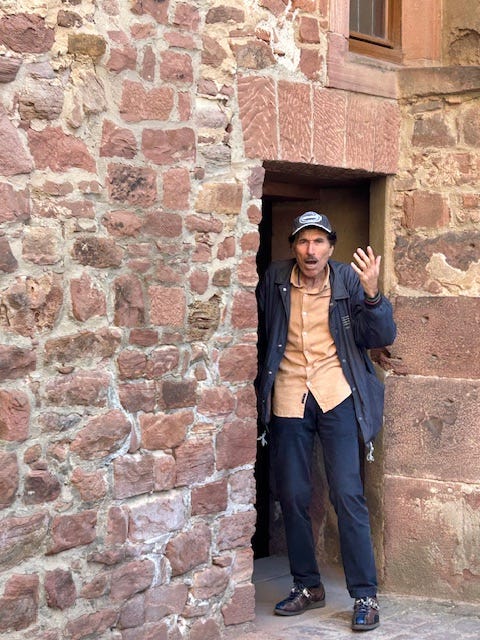We came home last night after 5 weeks of being out of the country. Generally I don’t like to make fun of menu translations or bad grammar (though I notice of course); still, I couldn’t help but be amused by reading “an onion and his ice cream” on a menu in Italy. Later I spotted another dish in another restaurant described as [something] “and his ice cream.”
I want to have an ice cream companion! This is just one more way in which Italy is excellent.
One stop on our journey—and an important reason for going—was Heidelberg, where I plan to set my next novel (at least in part). I’ve become fascinated with Elizabeth Stuart, who lived in the Heidelberg castle for six years before moving to Prague and losing everything. As you can imagine, I was eager to tour the castle. But our tour guide, sadly, was a dud. It was hard to understand his English—and also his German, according to our German friend, who went with us.
But he was a funny fellow, this tour guide. He was thin and small and occasionally broke out into jaunty little steps that played like a dance. You couldn’t ask him a question—he merely said what he had said before—and he took such a long time setting up a joke that the punchline felt like a denouement.
Still: It reminds me that, for all the world building and plot swerves etcetera, it’s the characters who stay with me.
Heidelberg is lovely, btw.
Writing prompt: Who thought of that?






Probably thought ice cream needed a masculine the for il gelato. His fit the bill in an awkward translation. We make the opposite mistake when we know a little Italian but don’t know whether to use il or la, i, or gli, lo etc. I took Italian but don’t remember all the rules on articles.
Jim
They do that in French, too! Like, "une braise et ses legumes"--"a braise and its/her vegetables." :)